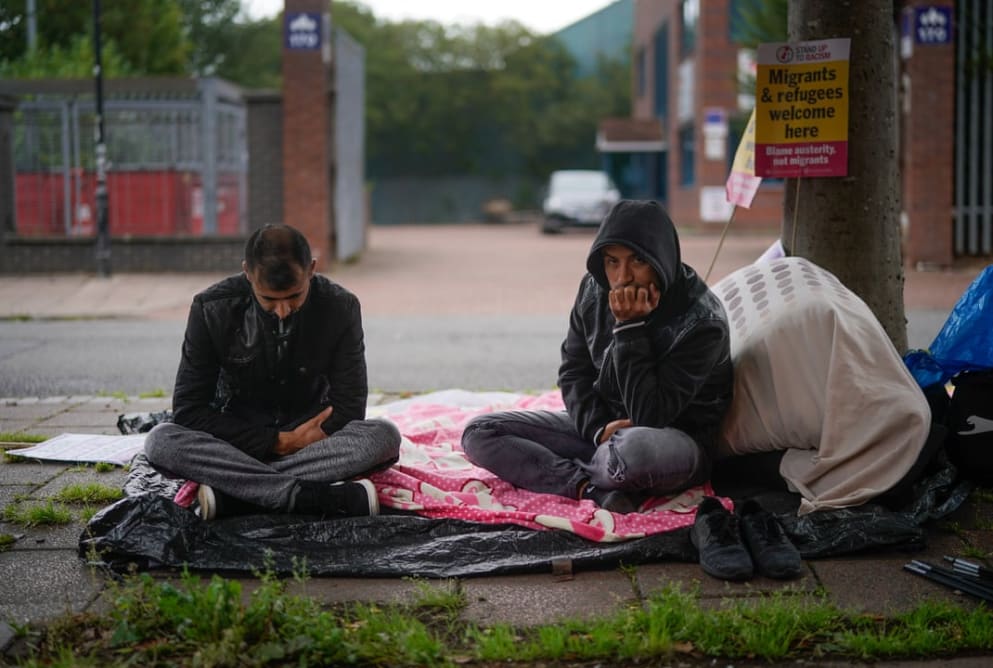We are delighted to have Holly Barrow, a political correspondent from the Immigration Advice Service, write this guest blog for our website. This is a topic close to our hearts as we witness this first-hand with the clients we support.
While 2020 was undoubtedly a year of immense suffering for billions across the globe, it would be inaccurate to suggest that all of those affected by the pandemic have weathered the same storm. With rising unemployment and spiralling poverty, those with the least have regrettably suffered the most. Despite the UK government being acutely aware of quite how severely the pandemic has impacted some of the most vulnerable people - with its own statistics reflecting that migrants with NRPF who have applied for destitution funds increased by 520% between the months of April and June - this has done little to stop it from viciously targeting groups who require its support.
In March, the government received widespread praise for implementing its ‘Everyone In’ scheme, granting local authorities emergency funds to provide shelter to those who were rough sleeping throughout the public health crisis. And yet, just months later - with the UK still far from having contained the virus - the government brought this funding to an end. Now, as we continue to battle a new strain of the Coronavirus, the government has once again turned its attention to demonising migrants at a time when every human being needs the utmost support.
From December 1st, the government announced that it would be permitted to use homelessness as grounds for cancelling or refusing permission to remain in the UK, essentially criminalising non-UK nationals who find themselves in the involuntary position of rough sleeping. The policy will target those rough sleeping for deportation, as their immigration status will become ‘illegal’ if they remain in the UK while sleeping rough. It comes at a time when much of the nation is under lockdown measures due to spiralling Covid cases.
MPs, charities and campaigners have urged the government to
u-turn on this callous immigration policy, emphasising that those who are rough
sleeping require assistance and ought not to be treated as criminals. Many have
highlighted the sheer hypocrisy of a government that has been criticised for
years for actively placing migrants at risk of destitution now setting out to
punish those who have suffered the consequences of its own policy.
The No Recourse to Public Funds condition in particular is
one such aspect of UK immigration policy that has left many migrants vulnerable
to poverty. NRPF applies to many UK visa holders, including those with Work Visas and Student Visas, and means that they are
ineligible to access state support in the form of welfare payments or housing.
For decades migrant charities have published damning reports
into the harrowing consequences of the NRPF condition, urging the government to
provide state support to migrants who need it. This year in particular has
brought into sharp focus the dangers of leaving people with no access to a
social safety net. While British
nationals have had access to the likes of Universal Credit and other
forms of welfare support throughout the global pandemic, migrants with NRPF
have largely been left to fend for themselves or rely on migrant charities amid
extensive job losses and rising unemployment.
A 2019 report by the Unity Project which looked at
the repercussions of the policy found that the majority of those supported by
the project who experienced destitution due to NRPF were in work. Its research
also found that nearly all of the families with NRPF surveyed - the majority of
which were single mothers - had experienced severely inadequate and overcrowded
accommodation. 6% of single women surveyed had experienced street homelessness
with their children and more than half said there had been at least one day
when their children had not been able to eat a hot meal because they could not
afford it. The government’s recent decision to refuse immigration permission to
those who are homeless therefore creates a vicious Catch-22 scenario; those who
will essentially be punished through deportation for rough sleeping have no
other option since they have no access to state support.
Beyond failing to address the role of immigration policy in
contributing to homelessness among migrants, the government’s decision to
criminalise migrant homelessness will serve the additional blow of pushing some
of the most vulnerable into even more precarious circumstances, such as
exploitative work. Allowing homelessness to be used as a stick to beat migrants
with is not only morally abhorrent, it actively endangers those who are already
at risk of trafficking and abuse.
Those who cannot currently find employment due to the
pandemic will feel they must resort to exploitative work out of fear of
deportation if they were to become homeless. What’s more, this policy threatens
the safety of domestic abuse survivors who may feel trapped into remaining with
their perpetrators as a result of lacking financial independence and fearing
destitution; they may feel they have no choice but to remain in an unsafe
environment out of fear of their immigration status becoming ‘illegal’
otherwise.
It seems only further reflective of the government’s hostile
approach to immigration; another in a seemingly never ending string of measures
brought into effect with the sole purpose of scapegoating migrants. When paired
with Home Secretary Priti Patel’s countless unethical proposals for shirking
responsibility of asylum seekers - such as the use of wave machines, offshore asylum processing and
the use of nets to stop migrant boats from crossing the Channel -
the government’s post-Brexit approach to immigration is shaping up to be
vicious in nature and devoid of humanity.
Holly Barrow is a political correspondent for the Immigration Advice Service - an organisation of OISC-accredited
immigration lawyers providing legal assistance with any immigration matter

